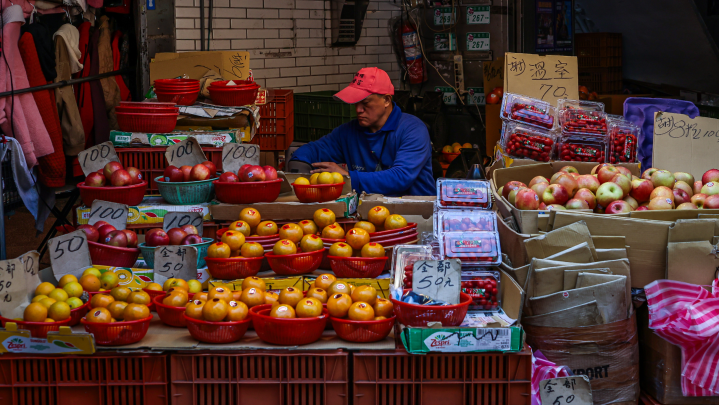
Economy and cost of living at top of mind in Taiwan’s election
Economy and cost of living at top of mind in Taiwan’s election

This story was produced by our colleagues at the BBC.
Chen Yu-hong has been working at a noodle store in in New Taipei City, Taiwan, for several years, earning around $1,300 a month. His wife makes roughly the same amount. But even with two incomes, they barely have enough to support their two young daughters.

“We try our best to be frugal, such as by cutting down on entertainment like watching a movie or traveling. We avoid smoking or eating a big meal out. As for children’s snacks, we try to just feed them the main meals and cut back on snacks,” he explained.
He can only dream of owning a home and doesn’t think the election this weekend will change that.
“With the past few presidents elected, the housing price still rose, and there’s no trend of it falling,” he said.
Chen Yu-hong is also worried about losing his job. Inflation has driven up the cost of products the noodle shop uses: Goose meat prices have risen by 15% and pork by 30% this year. Now, with his boss planning to close the store because it’s no longer making a profit, he has to try to find a new job.
Taiwan’s economy grew by just under 1.5% last year. While wages have increased, they haven’t kept up with inflation, which is more than 2%. Food prices have risen by three times as much. The profits of technology giants such as global semiconductor maker TSMC and electronics assembler Foxconn aren’t filtering down to ordinary people, like Chen Ya Hui.
She owns a small eatery and says she’s making 30-40% less money than she was before the pandemic
“In the past, a family of four would buy four boxed meals from us. Now, they buy only two and take them home to share and mix with rice or other staples they have at home,” she said.
Chen Ya Hui said the current ruling party, the Democratic Progressive Party, is too focused on bickering with the Chinese government and instead needs to focus on improving people’s living standards.
“When both sides’ economies have problems, how could you fight with each other? When you don’t even have money to buy rice, how could you buy bullets? Why don’t you first buy rice instead of bullets?” she asked.
Rising inflation and the difficulty of buying property are making many young people lose hope in Taiwan. College student Jack He works in a beverage store earning around $6 an hour, just a little bit more than the minimum wage.
He doesn’t think anything will change after the election, because he believes Taiwan’s tax system favors the rich.
“The people in whichever is the ruling party are the same people with a lot of property. They don’t want to hurt their own interest,” he said.
After he graduates, he wants to move abroad. “I should try to push for change, but I realize there’s no way to change the current situation,” he said. “The sense of helplessness is very strong in Taiwan.”
Both the U.S. and China will be closely watching the outcomes of the elections, but the deciding votes may be economic rather than political.
There’s a lot happening in the world. Through it all, Marketplace is here for you.
You rely on Marketplace to break down the world’s events and tell you how it affects you in a fact-based, approachable way. We rely on your financial support to keep making that possible.
Your donation today powers the independent journalism that you rely on. For just $5/month, you can help sustain Marketplace so we can keep reporting on the things that matter to you.











